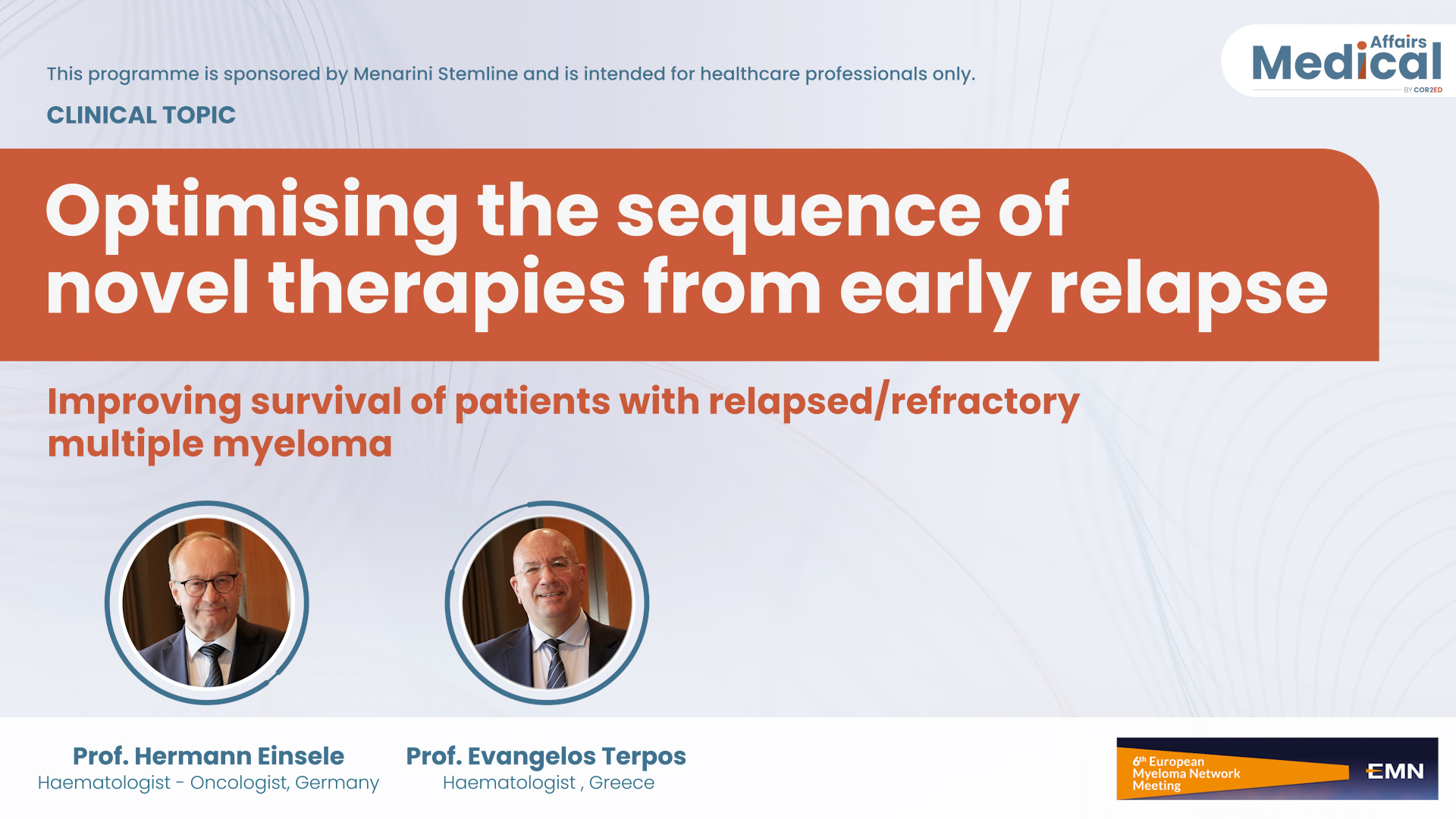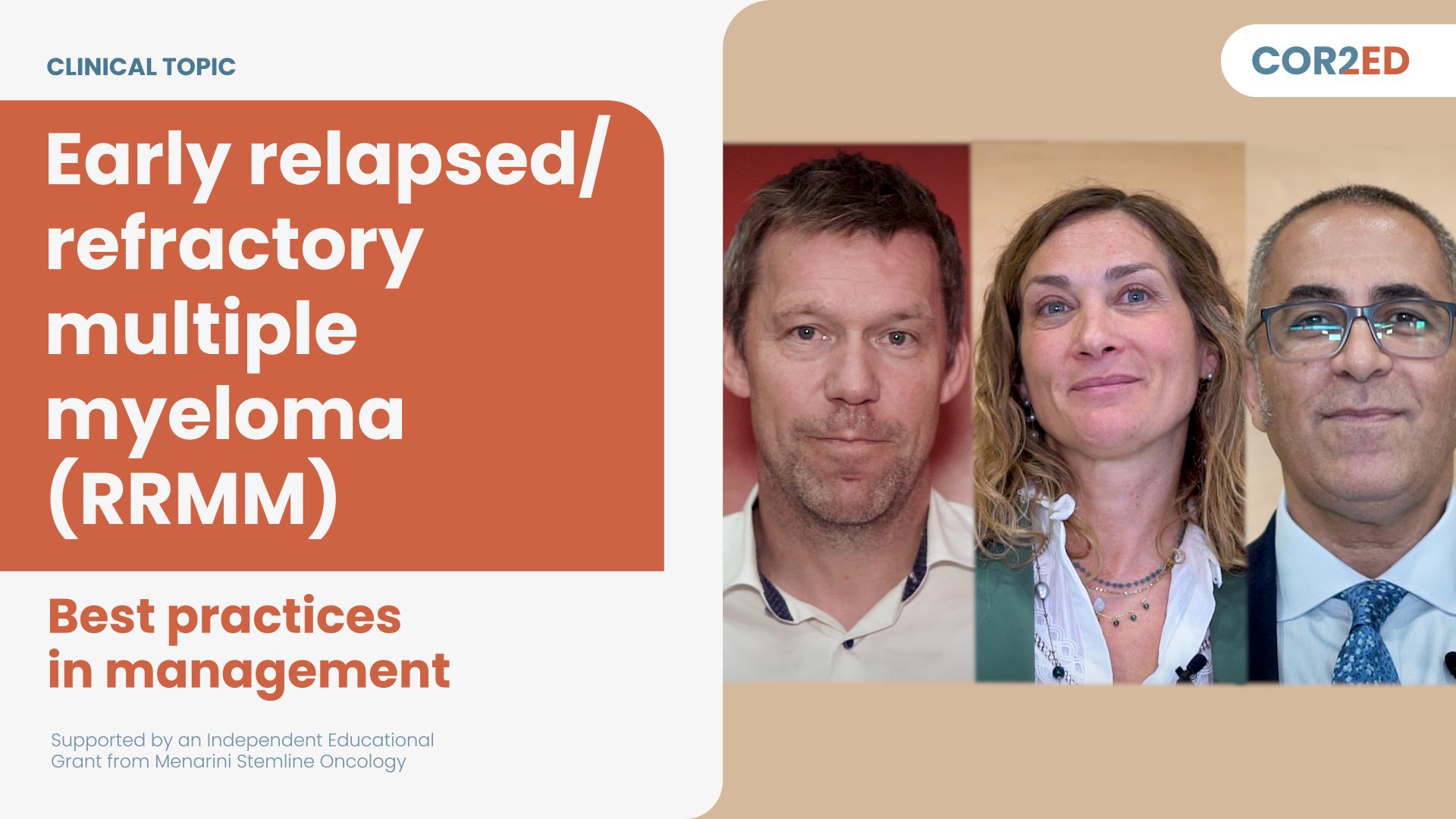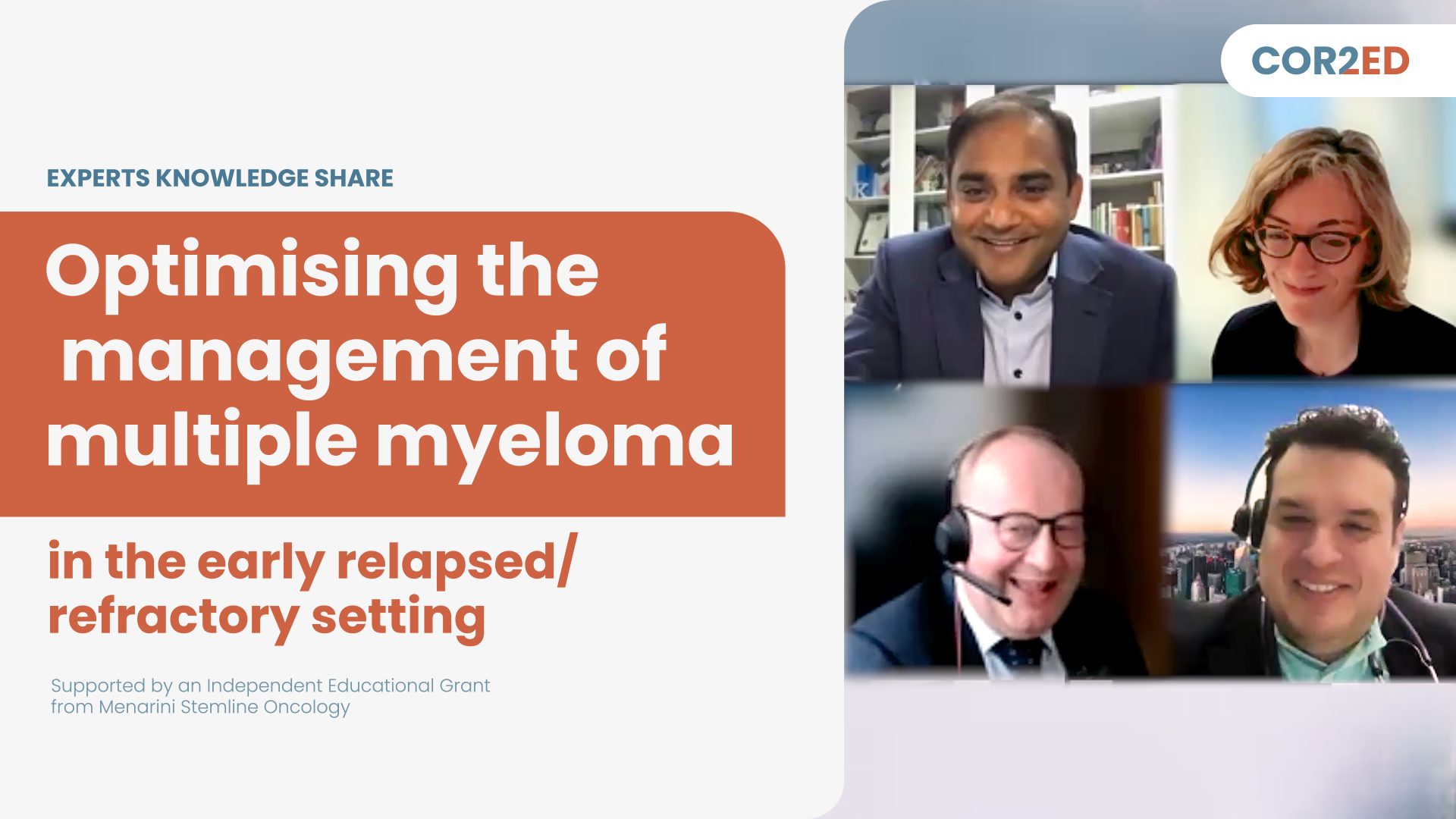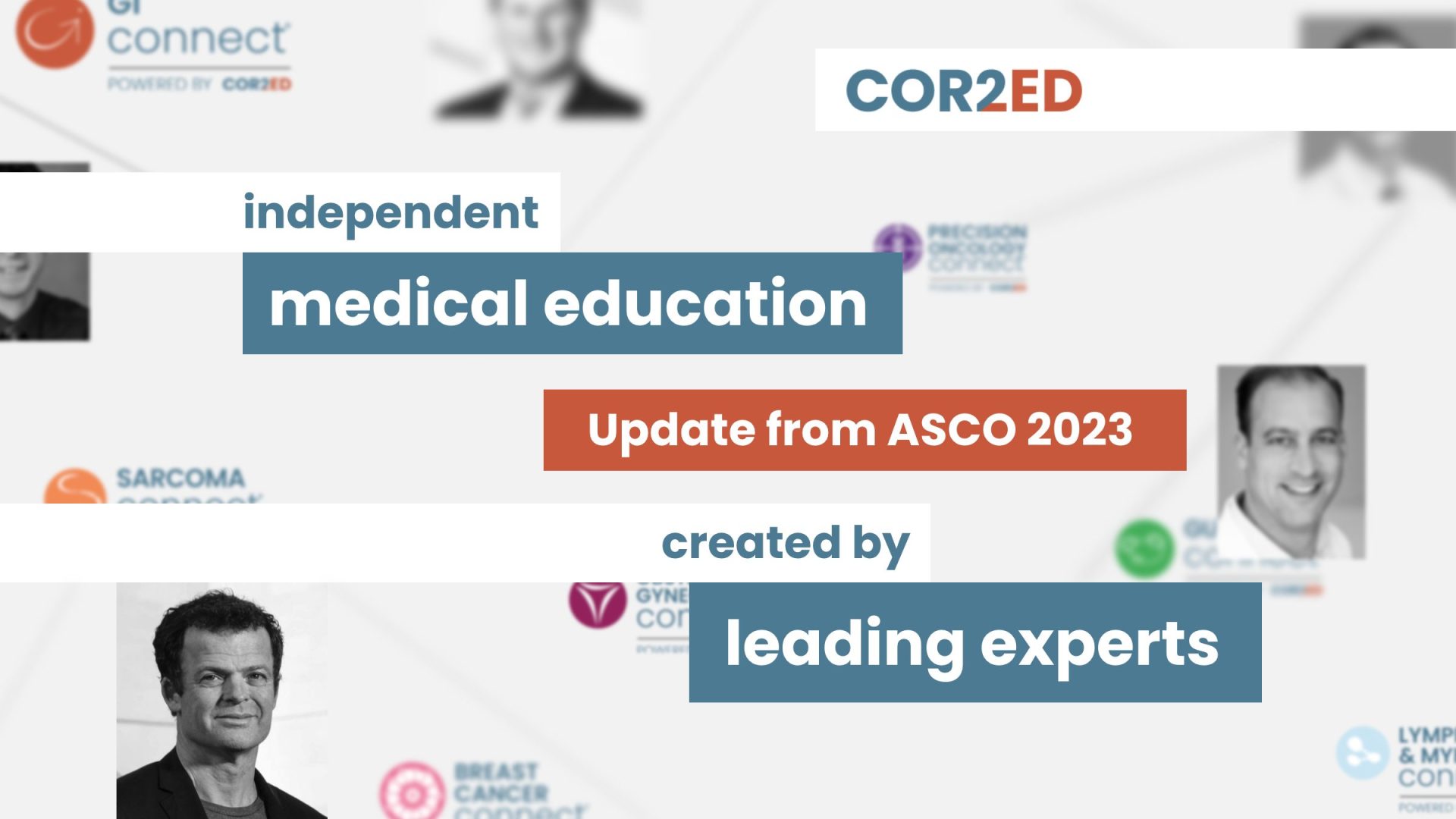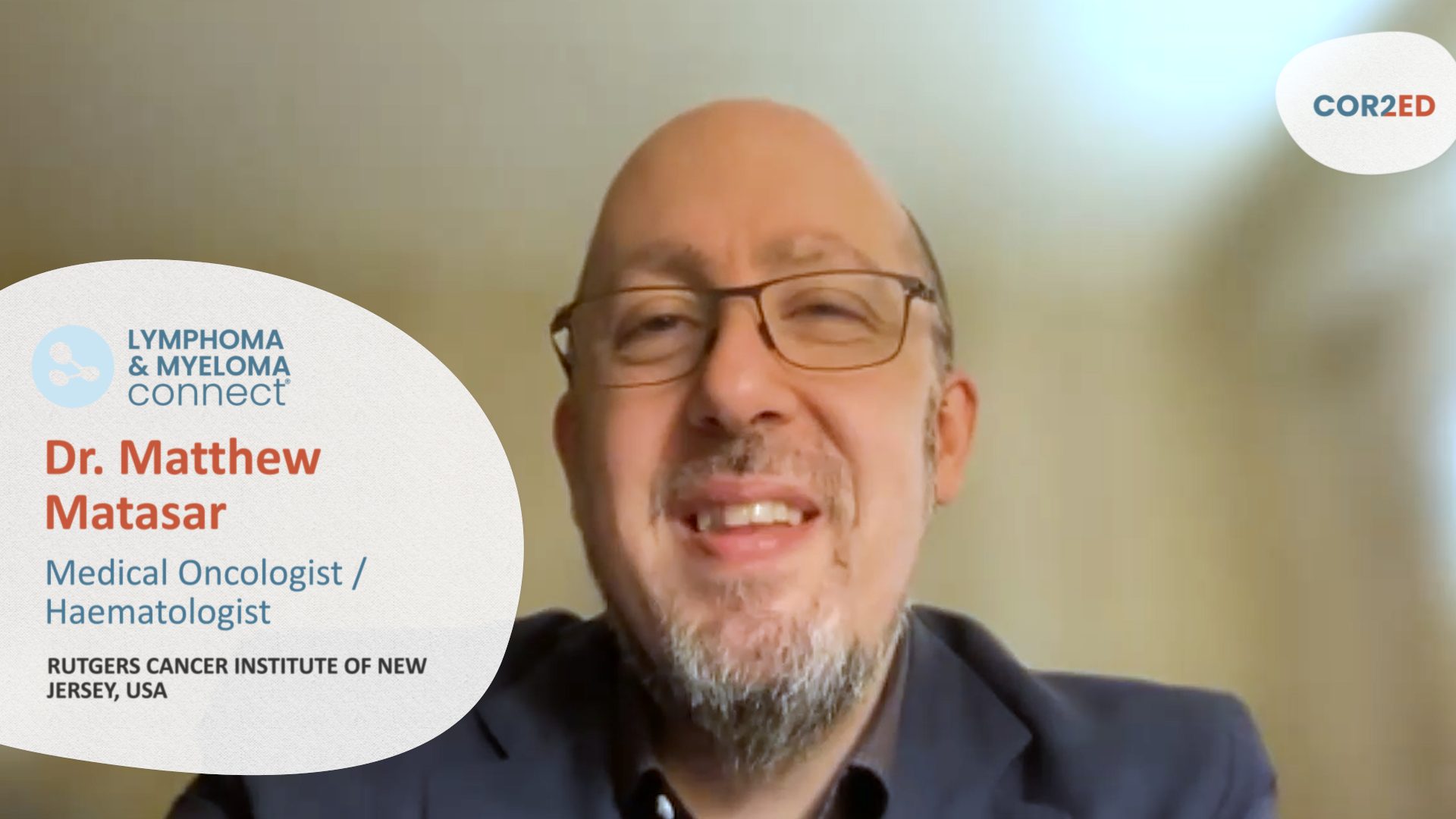Video Transcript
My name is María Victoria Mateos. I work as a haematologist at the University Hospital of Salamanca in Spain, and I will discuss with you the management of relapsed and refractory myeloma patients: triple and penta refractory.
You know that this population is becoming more and more frequent in our clinic. If we follow the European guidelines since 2017, after the second and especially after the third line of therapy the majority of our myeloma patients have been exposed and most of them refractory to proteasome inhibitors, immunomodulatory drugs and monoclonal antibodies, anti-CD38.
Poor prognosis
From the observational studies point of view, we know that the population of triple- and penta-refractory patients has a very poor prognosis. With the conventional agents the median survival is not superior to eight months and the median progression free survival is at approximately two or three months.
Selinexor
In this situation, we have novel opportunities for these patients. We have selinexor, the first-in-class oral selective inhibitor of nuclear exportin that inhibits XPO-1, activating tumour suppressor proteins and reducing oncoproteins. Selinexor is thought to be effective in triple- and penta-refractory myeloma patients as a single agent. In fact, selinexor plus dexamethasone was approved by both the FDA and European Medicine Agency.
Personally, I see the future of selinexor in combination, for instance with pomalidomide and dexamethasone. Or in combination with the monoclonal antibody daratumumab, as preliminary studies showed some encouraging efficacy and safety results in this population with a median progression free survival of approximately one year.
Melflufen
Melflufen is another novel agent. It’s a peptide-drug conjugate also evaluated in these triple-refractory myeloma patients. It is showing to be effective, especially in patients with extramedullary disease. I see a great potential for melflufen in combination with either bortezomib or daratumumab because in preliminary studies it showed medium progression free survival of approximately one year.
CELMods
New CELModS are also very attractive. So far we have seen encouraging efficacy and safety results with iberdomide or CC-92480 in relapsed and refractory myeloma patients, even refractory to conventional immunomodulatory drugs like lenalidomide and pomalidomide.
BCMA-targeted therapy
Finally, we are entering into the BCMA-targeted therapy, that we can target either throughout the bi-specific monoclonal antibodies, CAR-Ts or antibody-drug conjugates. Belantamab mafodotin, an antibody-drug conjugate, is the first BCMA-targeted therapy so far approved for this population, based on the results of the DREAMM-2 studies. But, again, I see belantamab can be combined with other backbones and preliminary but encouraging results has been so far reported in combination with pomalidomide and dexamethasone.
CAR-T
CAR-T cells are quite exciting. Ide-cel has just been approved by FDA and we are awaiting the approval here in Europe. Both ide-cel as well as cilta-cel really cover the unmet medical needs we have for triple- and penta-refractory myeloma patients, because of the high overall response rate so far reported as well as the complete response rate. We have to definitely improve the durability of the responses but many new CAR-Ts are emerging in order to try to improve the efficacy.
Bi-specific antibodies
Together with the antibody-drug conjugates as well as the CAR-T cells, we have the bispecific monoclonal antibodies. Today most of them are targeting BCMA. There are preliminary data, but it’s very interesting because they are definitely able to also cover the unmet medical needs. Beyond BCMA, we are going to have novel monoclonal antibodies targeting GPRC5D and FCR85.
Treatment strategies
The main challenge with this background is: what is the optimal sequencing of therapy and how are we going to select the appropriate therapy for each patient? Personally, I think we have to consider the frailty situation, disease morbidity, risk assessment and treatment history, but also the lifestyle, in order to offer each patient in the most effective combination. The safest one. Also, we can’t forget to try to maintain the quality of life of our patients.
Thank you very much for your attention.

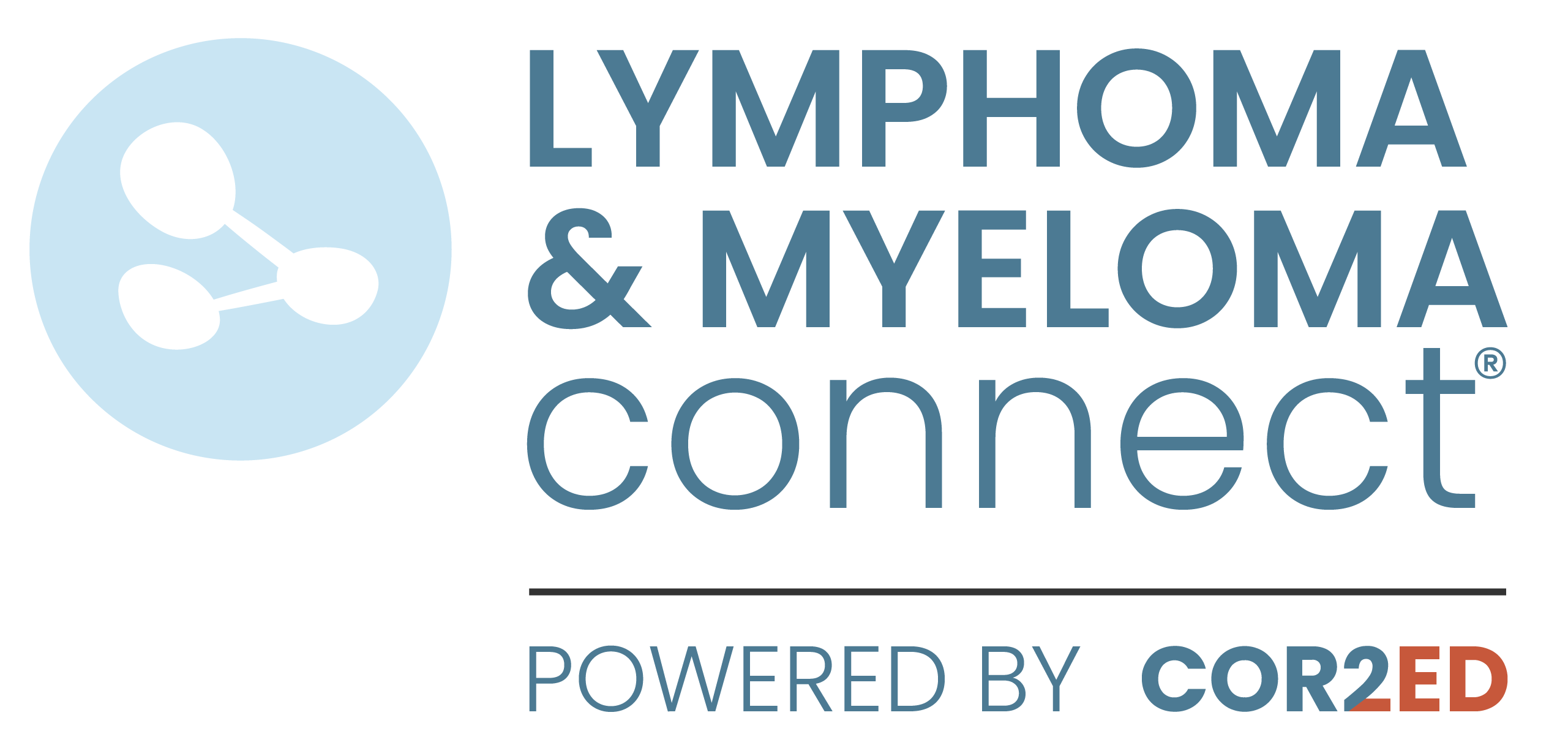


 Downloadable
Downloadable  3 MIN
3 MIN
 Jun 2025
Jun 2025 